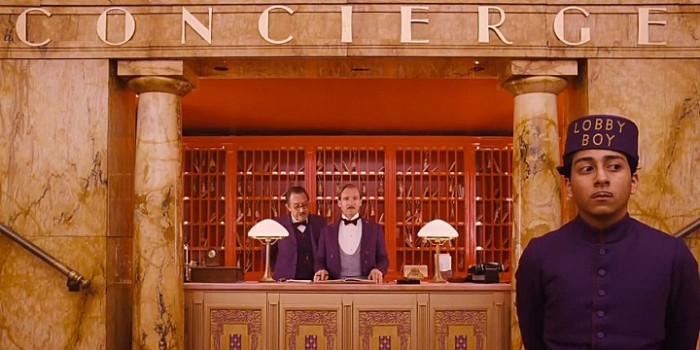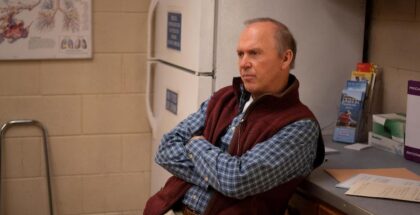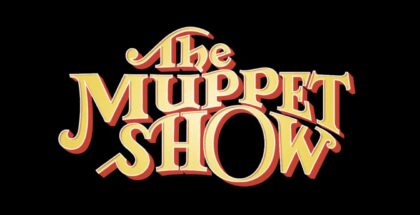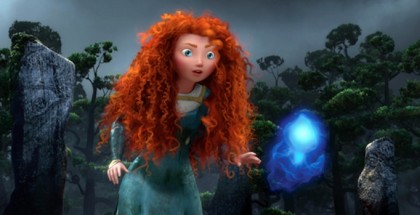VOD film review: The Grand Budapest Hotel
Review Overview
Menace
8Moustaches
8Pastries
8David Farnor | On 01, Jul 2014
Director: Wes Anderson
Cast: Ralph Fiennes, Tony Revolori, F. Murray Abraham
Certificate: 15
“There is still a glimmer of civilisation in the barbaric slaughterhouse we know as humanity.”
That’s Monsieur Gustave (Ralph Fiennes) to his young bellboy protege Zero (Tony Revolori) at The Grand Budapest Hotel. Located halfway up a mountain in the tiny, war-torn Eastern European Republic of Zubrowka, it’s a frontier for wealth, sophistication, old women with large suitcases and fluffy pink pastries. And M. Gustave lives for it.
We first hear of his story from a grown-up Zero (F. Murray Abraham), who meets a writer (Jude Law) in the now-faded grandeur of the old, dusty palace. We first hear of his encounter from the grown-up author (Tom Wilkinson), who tries to record his tale as his kids run amok around him.
A story within a story within a story? It sounds like par for the smug course for Wes Anderson, but this Russian doll is a delight to watch unfold. The movie comes to life as the layers unfold, going from a static, grey modern day to a hyperactive, pastel-tinted past with sets as colourful as the people in it.
When a matriarch the concierge was schtupping passes away, Gustave and Zero find themselves in the middle of a chaotic art heist, chased by Edward Norton’s stoic policeman and Adrien Brody’s crazily-haired heir.
Chuck in a heap of cameos from regular Andersonites, from Owen Wilson and Bill Murray to Jason Schwartzman, and you have a typically knowing tapestry that manages to be silly enough to entertain Wes skeptics as well as loyal fans.
While Moonrise Kingdom saw Wes inject a real sense of heart to proceedings, The Grand Budapest Hotel sees him go in the other direction: this is one of Anderson’s out-and-out funniest comedies, but it’s also his darkest movie. Blood splatters up and down the red hallways, as the spectre of conflict threatens to overshadow Zero’s romance with baker’s girl Agatha (the always-excellent Saoirse Ronan), not to mention the hotel’s frosted comforts. Animals, lawyers, nobody is safe – an encroaching danger embodied by the leather-clad hitman Jopling, played with a hilarious twisted grimace by Willem Dafoe.
The thing most at stake, though, is class. And Fiennes embodies it from carefully side-parted top to polished toe. This is perhaps his most openly silly role to date (Wallace and Gromit aside), as camp as a field full of pink tents and as sweary as an extra in South Park.
A tribute to the lost decorum of the past as well as the act of storytelling itself, The Grand Budapest Hotel feels almost like a summation of the rest of the director’s career; combining the naivety of Rushmore with the stop-motion anarchy of Fantastic Mr Fox, it zips along with mechanical precision, a clockwork dainty that ticks relentlessly against the gloomy tide of fascism; a reminder that sometimes the solution to existence lies in a smile.




















